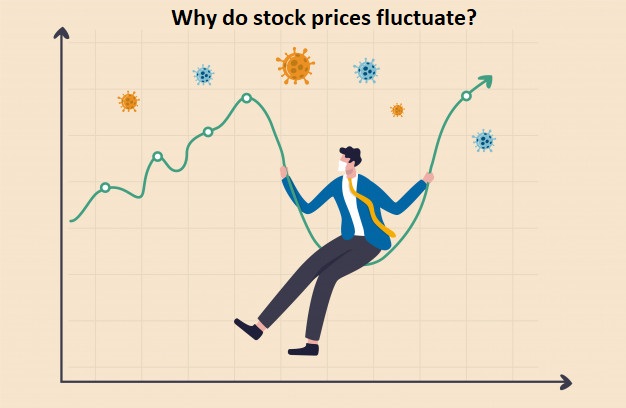Unraveling the Mysteries: Why Stock Prices Fluctuate
Introduction:
The world of stock markets is a dynamic and ever-changing landscape. Investors, both seasoned and novice, witness the constant ebb and flow of stock prices. This phenomenon raises a fundamental question: Why do stock prices fluctuate? Understanding the factors behind these fluctuations is crucial for anyone looking to navigate the complex realm of investments. In this blog, we’ll explore the key drivers behind the volatility of stock prices.
Market Forces at Play:
- Supply and Demand: At its core, the stock market operates on the principles of supply and demand. When more investors want to buy a particular stock (demand), its price tends to rise. Conversely, if there is a surge in selling (supply), the stock price is likely to decline. These fluctuations are a natural result of the ongoing negotiation between buyers and sellers in the marketplace.
- Economic Indicators: Stock prices are highly sensitive to various economic indicators. Factors such as GDP growth, unemployment rates, inflation, and interest rates can significantly impact investor sentiment. Positive economic news often leads to increased confidence and higher stock prices, while negative indicators can trigger sell-offs and price declines.Why do stock prices fluctuate?
- Company Performance: The financial health and performance of individual companies play a crucial role in determining stock prices. Quarterly earnings reports, revenue projections, and overall business strategies can influence investor perceptions. Why Stock Prices Fluctuate? Companies exceeding expectations often see their stock prices rise,

Market Psychology:
- Emotions and Sentiment: The stock market is not immune to human emotions. Fear, greed, and market sentiment can cause rapid and sometimes irrational price movements. News events, social media trends, and public perceptions can influence investor behavior, leading to sudden spikes or drops in stock prices.
- Speculation: Speculation is a driving force behind short-term stock price fluctuations. Traders often attempt to predict future price movements based on rumors, news, or market trends. This speculative activity can result in rapid and unpredictable changes in stock prices.
External Influences:
- Global Events: Geopolitical events, natural disasters, and global economic trends can have far-reaching effects on stock prices. The interconnected nature of the global economy means that events in one part of the world can impact markets worldwide. Investors closely monitor geopolitical developments to assess potential risks and opportunities.
- Market Liquidity: Liquidity, or the ease with which assets can be bought or sold in the market, also influences stock prices. Why Stock Prices Fluctuate? Highly liquid stocks are often less prone to extreme price fluctuations, while less liquid stocks may experience sharper movements in response to buying or selling activity.
Conclusion:
In the intricate tapestry of the stock market, the fluctuations in stock prices are the result of a complex interplay of market forces, economic indicators, investor sentiment, and external influences
Why Stock Prices Fluctuate
While these fluctuations can be challenging to predict, understanding the underlying factors can empower investors to make informed decisions and navigate the volatility of the market with greater confidence. Why Stock Prices Fluctuate? Whether you are a seasoned trader or a first-time investor, staying informed and adopting a long-term perspective can help you weather the storms and capitalize on the opportunities presented by the ever-changing stock market.


